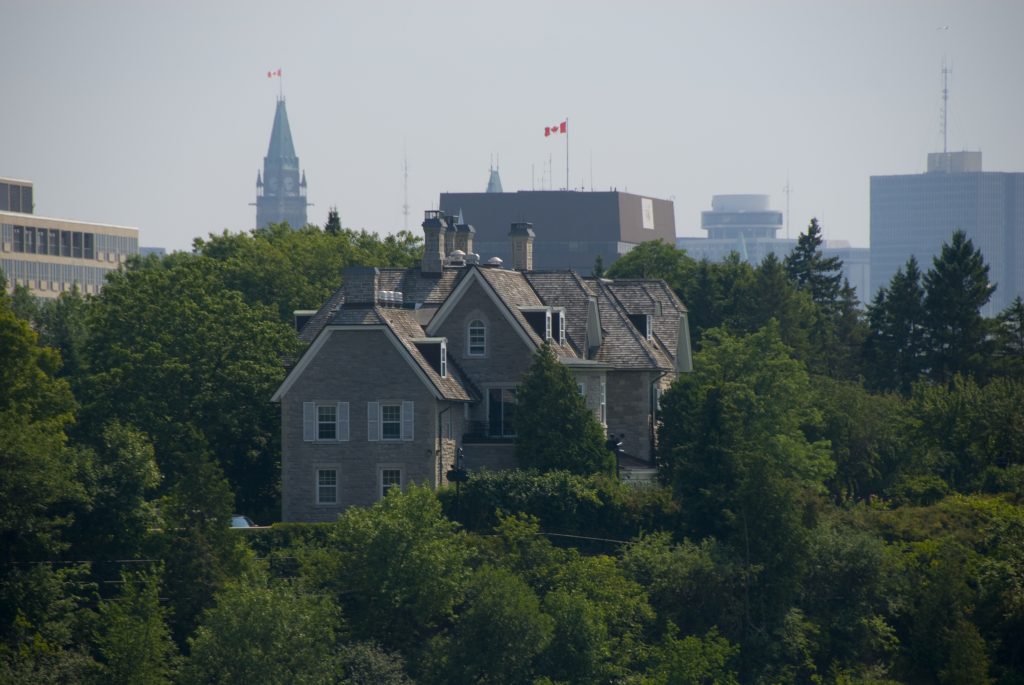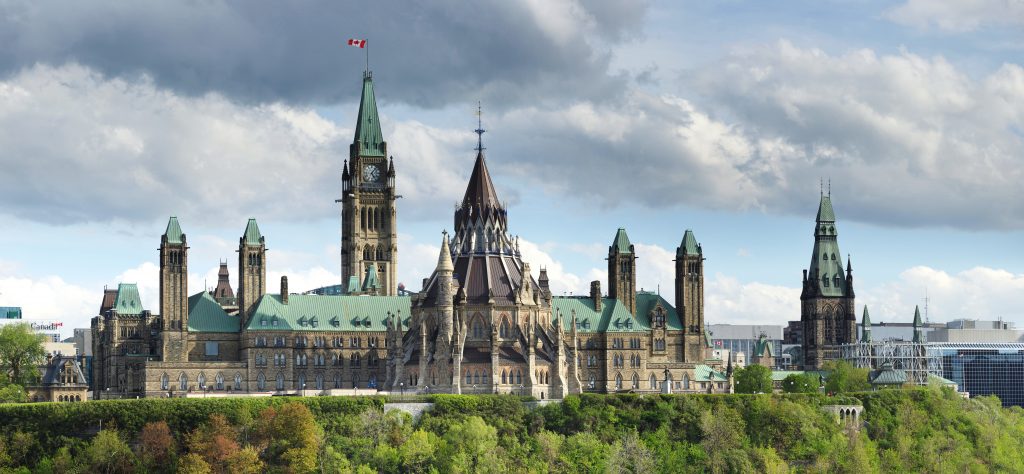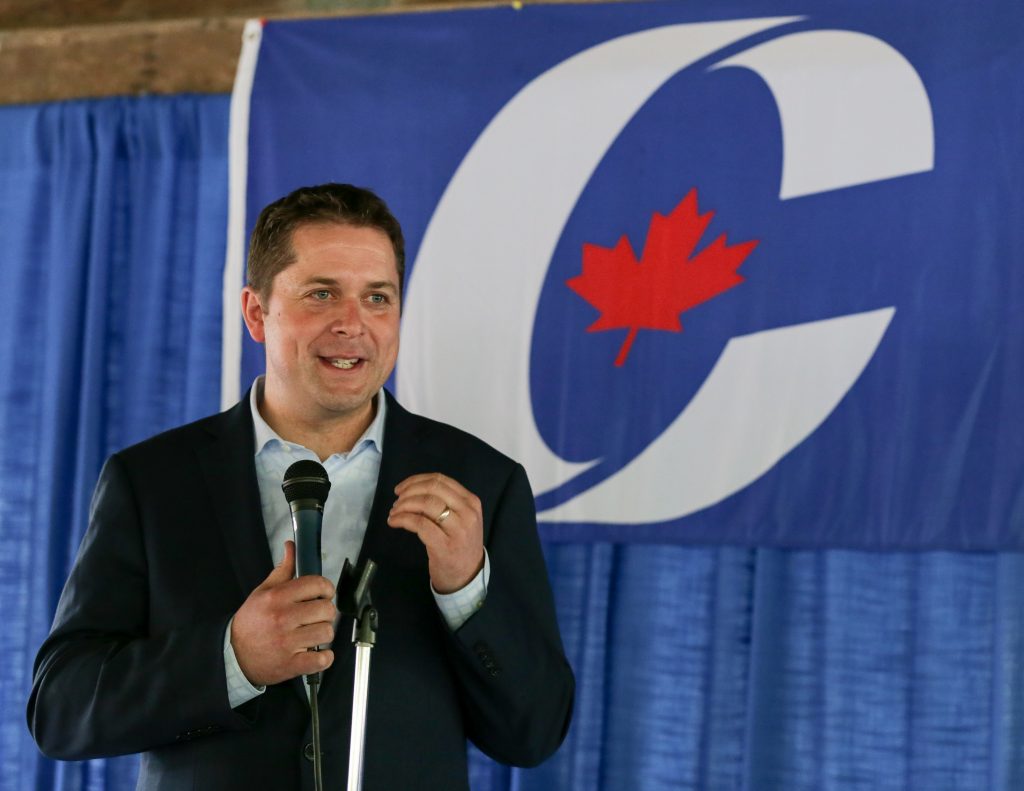The Canadian Government has passed two significant milestones on its journey to legalise cannabis for recreational use. The flagship bill – C-45 – has passed all stages in the House of Commons and is now before the Senate. And just last month, the health ministry published for consultation the national regulations to bring into effect the new law.
Both had been anticipated before the new year, and it shows that for now, the Trudeau government remains on track to deliver the new regime by the end of July 2018.
Predictions that the bill would be dropped earlier this year proved wrong. And suggestions that legalisation would happen much later than 2018 also now look unlikely. As they said, and as they meant, legalisation is happening and Trudeau’s government is staking a lot on cannabis reform as a flagship legacy of its domestic policy agenda.
Now feels like a good time to take a step back and reflect on the policy itself and what it has taken to get this far, because the example remains extraordinary. Quite how unusual is still not really appreciated by many foreign observers – or even by many advocates who support the move domestically – but it is a case study in bold policy combined with risky politics and ultimately, an emerging example of good government.
Bold policy
The effort to legalise cannabis has been underway since Trudeau was elected Prime Minister in 2015. However, despite what pot campaigners think, deciding to legalise cannabis is very far from easy politically. And taking the political decision is much easier than actually implementing it. That is where all the hard policy work happens, and it is done for the most part behind closed doors, by hard-working policy officials and regulators who are unknown to voters, and who are themselves probably not used to working on something quite so big, and under such time pressure.
For those who have never worked in government, it is sometimes difficult to appreciate what this level of proactive policy-making involves, and why it is so rare. The cross-government effort already invested in taking legalisation forward – from commission, to internal position papers, new modelling, bill drafting, consultation planning, and then through to legislating, briefing stakeholders, devising and promulgating and then enforcing new regulations – involves at least four ministries (health, justice, public safety, and finance) and probably hundreds of staff. Maybe thousands if you include all agencies and provincial officials across Canada. And all this work in preparing for the Big Bang moment comes on top of the effort underway at Health Canada to license more facilities and process a surge in applications to approve patients, expand production and testing facilities, and make other arrangements to ensure sufficient supply.
Such efforts are rare because such seismic reforms are rare. Gurus of good government like Michael Barber would likely credit the Canadian Government for following through on its pledge, but as a policy proposal, such experts rarely support Big Bang reforms like this. They advocate pilots, and testing, to generate good data and an evidence base, before policies are dropped from a great height on taxpayers (Barber may even have advised Trudeau to this effect last year).
America’s state level experience has certainly informed Canada’s plans, generating much needed data to guide the regulations and taxation plans, and of course Ottawa is downloading the burden of regulation over retail and distribution to provinces, which will allow for more diversity in how legalisation takes effect (and shares out some of the political risk too). Even though piloting and local implementation is usually the more sensible way to do public policy, it is clear why on cannabis reform that ultimately seemed impractical in a country with a single criminal code.
And with bold policy, and Big Bang implementation, comes even bigger bills. Ottawa is throwing significant resources into delivering on the Liberal Party’s commitment. Another $36.4m for public education was announced in November, on top of the $9.6m already committed, plus the $274m pledged for law enforcement to help ready the police and municipalities. And currently, their plans for an excise tax would mean federal revenue capped at just $100m annually (so not exactly the windfall many were assuming, or a route to balanced budgets).
In policy terms, it is always difficult to get government to agree to spend hundreds of millions upfront on a reform that hasn’t been trialled domestically, even if big savings are expected downstream. The limited medicinal market here (up and running in some form since 2001) gives federal officials some understanding of consumer behaviour, but no real clarity over how a recreational market will play out, and there are big uncertainties about the scale of the market.
Taken altogether, this makes the cannabis policy file the most active and complex of any in Ottawa at the moment, and it will be for some time. All credit to Bill Blair MP, a political novice – though a seasoned and experienced public servant – for carrying this burden and getting the reform to this vital stage. It is probably as challenging as anything in his previous job as Toronto Police Chief.
One aspect is clear: legalising cannabis in one go costs a lot to implement upfront, and comes with tricky challenges around implementation, and therein lies the significant political risks.
Risky politics
Domestically, the politics so far have been largely plain-sailing. The Liberals’ governing majority has made legislating easier, and opposition from Andrew Scheer’s Conservatives has been mooted. So far any political heat has been felt by provincial governments in response to their plans to regulate retail and distribution, leaving federal politicians largely unscathed. In fact, the politics get most tricky for the Liberals after the go-live date, when all manner of practical problems could arise on the ground or in the courts to damage Trudeau’s government in the year leading up to the next general election.
Political risks from some foreseeable events abound. From major supply shortages and a resurgent black market, to civil disobedience by dispensaries, heavy-handed enforcement against home grow violations, high school student rebellions, diplomatic incidents at the US border, court challenges from medical users, a spike in traffic deaths by impaired driving – all are possible and all will be hard to prepare for or manage. At least some of these have the potential to become national controversies. And then there is the international diplomacy needed to navigate Canada to a new position vis-a-vis its obligations as a signatory to UN drug control conventions.
Admittedly, it is not all downside for the Liberal Party. If they get the rules right, and if the implementation next summer goes relatively smoothly, then the party will have improved its chances of returning to government at the next federal election in 2019. And it is obviously in the party’s interests to signal further reforms to win over voters for that election too, like the legitimate concerns people have about historic criminal records for possession. It would be a cheap and direct political pitch to the millions of Canadians with a pot charge on their record to dangle this particular carrot before the voters late next year.
But in both political terms and for the Prime Minister’s personal reputation, Trudeau’s legalisation plan clearly remains a gamble. Keeping to the status quo would have been easier. After all, there was no trigger event that forced them to change course – as the original Supreme Court ruling did for Stephen Harper’s government which ushered in the first regulated medicinal market for Canadians. And they were not forced into it by the sheer weight of campaigning pressure.
In fact, there were and are plenty of reasons not to legalise cannabis. The move is irreversible – this genie won’t be going back in the prohibition bottle for sure. It is highly disruptive – to local communities, to the consumer market, even the public culture – if you live in or visit Canada you will not be able to avoid it. It is not universally popular – and may yet become less so if living with the reality of legal marijuana offends people. And it is socially very impactful – to families, to businesses, and to some of the most vulnerable people in society – and we do not know enough about the long-term implications. And so despite all these reasons not to do it, or to delay, the political risk has been embraced.
Good government
With bold policy, and political risk, comes the opportunity for good government. We no longer live in a world where the media, or even the voters, credit governments – and certainly not individual politicians – with much at all. Popular respect for the job of governing – what some call ‘statecraft’ – has evaporated. That doesn’t mean that the job going on behind the scenes is any simpler. Governing well is never an easy business, and making trade-offs and delivering for voters gets harder every electoral cycle as expectations shift and knotty problems get knottier.
Too often democratic governments lead from behind – take Australia’s recent debate over equal marriage – and many politicians fear changing national policy if it comes with any sizeable opposition. Ottawa’s push to legalise cannabis – leading public opinion, and setting aside domestic critics and the international status quo – is the exception, not the rule.
And even more often, the promises made by Opposition parties – however un-fudgeable they seem, and however valuable at election time – often end up being fudged, or traded away, once in office. Manifesto commitments to change the law get overtaken by events, or become pledges to set up commissions, and then to review findings, ahead of consulting and then legislating, before the end-product (if it arrives at all) is unveiled, only to be not quite what the voters were promised.
But not this time. Canadians were told – and young voters heard it especially clearly – that voting in Trudeau’s Liberal Party in 2015 meant supporting plans to legalise pot. Perhaps some thought it would never happen. And the obligatory commission was indeed set up, but then miraculously it avoided the long-grass. The government did the rare thing of actually responding and acting on it. This commission report is well-thumbed, and not gathering dust.
In Canada, Trudeau’s government is failing in many areas, and is very far from popular, but it is still attempting to do something bold, and to do it with pace and with seriousness. Even if you disagree with the policy to legalise pot – and many people are uneasy about it – the fact that Ministers are following through on it is both good for public trust in politicians, and a sign of Canada’s grown up commitment to govern well, and to deliver on its commitments.
Government is rarely this bold. And if ending decades of pot prohibition to implement – at one stroke, and nationwide – a legal, regulated regime is by definition bold, then it is remarkable how quickly this has all come together. It only became party policy less than a decade ago.
Reform not revolution
Defining their own national policy, calling for evidence, consulting widely, and then legislating in a coordinated and systematic way, are all signs of good government. But this reform is even more praiseworthy, because it is about embracing the world as it is, and getting ahead of the tide.
Even if Canada didn’t think the status quo of prohibition would hold, by moving to regulate now, in a country that could handle the complexity and the scale, was smart politics. And it was even better statecraft – pre-empting a social change that might be forced on you later, in order to shape it and minimise its harmful effects. A very Disraelian example of responsible government.
After all, it takes a lot more effort to do something in government than to resist doing something. Lots of people lobby government to make changes, and most are disappointed. Usually a lack of leadership, and an aversion to experimentation, combined with bureaucratic inertia – or the ‘forces of conservatism’ as Tony Blair once called it – combine to doom most plans for radical reform. Reactive stability, not proactive disruption, usually wins out.
Even the political reforms that are proactive just involve spending public money, levying new taxes, or amending some existing law – those things that governments and only governments do. Cannabis legalisation is so much more than this. Yes, laws will be passed and public money spent, but this is the birth of a whole industry and the mainstreaming of an entire illicit culture. It is the legitimatisation and regularisation of a unique and potent drug in order to supply a mass consumer market, where individual users and the decisions they make will matter more in the long-run than any law passed by legislatures.
So doing it at all says something about the reforming ambition of this government but also the political confidence of Canada right now. With seven months to go before recreational cannabis becomes a reality, a lot is riding on whether this rare example of bold policy can be landed successfully, or whether implementation efforts will overwhelm the government and it will ultimately unravel, and with it Justin Trudeau’s political fortunes.
Blair Gibbs is an advisor to VolteFace based in Vancouver, BC (@BlairG1bbs)




